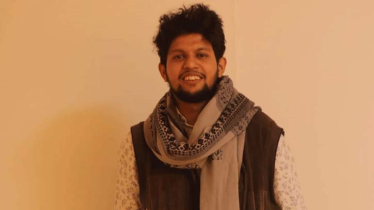
Photo: Collected
Speakers at a discussion meeting on Tuesday (28 May) urged the government not to be misled by a campaign against genetically modified organism (GMO) foods.
They said that crops created by GMO technology are often subjected to various criticisms and misinterpretations. But genetic technology provides various benefits ranging from increasing crop nutrients to suppressing harmful pests of crops without using much less pesticides and above all ensuring high yield in small land.
Agriculture Biotechnology Coalition (ABC), Global South Hub, Farming Future Bangladesh and Alliance for Science organised the open discussion on “Conventional Misconceptions and Scientific Explanations of GMOs” at CIRDAP Auditorium in the city.
Anwar Faruque, former Secretary of Agriculture and convener of the Agriculture Biotechnology Coalition said “GMO controversy is nothing new, but any misinformation can be multiplied in the current digital media age.
“Various organizations are playing the role of propagandists here; I believe they have no clear scientific understanding of GMOs”, he said.
BRAC University Professor Dr. Aparna Islam said, “GMO technology is a powerful medium that can be used to increase our food security and produce nutritious crops."
However, it is important to be aware of the potential risks of this technology and take steps to address them, she opined.
By discussing the environmental impacts of GMOs, we can use this technology responsibly so that it benefits everyone, she said.
In view of the ban on commercial cultivation of golden rice and Bt brinjal by the judiciary in the Philippines and the disinformation activities of anti-GMO organizations in Bangladesh, Bangladesh Rice Research Institute Chief Scientific Officer, Dr. Abdul Quader said, “It is very unfortunate that some people are commenting on GMOs based on misconceptions."
Referring to the World Health Organisation, he said one in five preschool children suffers from vitamin A deficiency.
Most of them are born in poor families and their families cannot afford to buy various types of vegetables and fruits rich in vitamin A in their daily diet in this high priced market.
“In that case, the 'Vitamin-A' present in golden rice in the daily diet will be able to fill this deficiency. So I encourage everyone to know the real truth,” he added.
Director General of Bangladesh Rice Research Institute Dr. Md. Shahjahan Kabir said, Bri or its scientists speak on the basis of researched data, not on assumptions or emotions. BRI scientists have tested this rice for many years and have confirmed that it is completely safe for the human body, animals and the environment. Golden Rice is as safe as Brie Dhan29.
The US Federal Drug Administration (FDA) has tested this rice and said it is completely safe.
The same has been said by organizations such as Health Canada and Food Standards Australia-New Zealand.
No study or journal in the world has proven the environmental, health and other risks of GM crops, he noted.
During the discussion, Research Director of Bangladesh Agricultural Research Institute, Dr. Md. Abdullah Yusuf Akhand, highlighted the need of Bt brinjal in the agricultural sector of Bangladesh.
He said, “Bt brinjal has changed the lives of many farmers in the country by reducing the cost of pesticides."
This reduced pesticide use by about fifty-one percent and improved their quality of life. For this reason, currently about sixty thousand farmers are cultivating this eggplant, he said.
Messenger/Sumon








